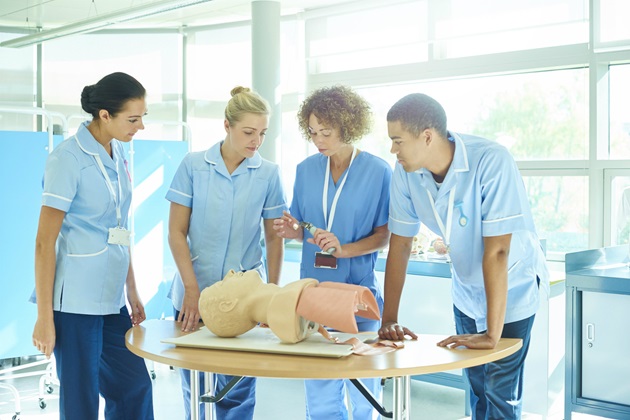Learning on clinical placement is a fundamental part of every student’s formal education.
As a result of changes introduced by the Nursing and Midwifery Council (NMC), the way that trainees’ and students’ work is overseen and signed off is now very different.
From spring 2019, mentors and sign-off mentors will be replaced by practice supervisors, practice assessors and academic assessors.
These changes to supervision and assessment while learning in practice will apply to all registered nurses, midwives and nursing associates as well as students, trainees and nurses returning to work via return to practice schemes.
Practice supervisors
Will be responsible for supporting students on placement. All registered nurses, midwives and nursing associates can be practice supervisors. They will no longer have to take an NMC-approved training programme, but should receive appropriate preparation and support to ensure they have up-to-date knowledge and experience that is relevant to the student/trainee and area of practice they are supervising. Practice supervisors may be supported in their role by other health and care staff, such as a physiotherapist or phlebotomist, if needed.
Practice assessors
Will assess trainees’/students’ overall performance while on placement and work closely with practice supervisors and academic assessors. They may be registered nurses, midwives or nursing associates, but will only assess within their scope of practice. However, registered nurses may also assess trainee nursing associates.
Academic assessors
Will confirm that students have achieved the standards required in their academic learning. They will work closely with practice assessors to provide confirmation of the proficiency of a student/trainee in providing safe and effective care and make recommendations for progression.
Proficiencies
The new standards include some additional proficiencies that nurses are expected to demonstrate. Examples of these include chest auscultation, taking blood and intravenous cannulation, and undertaking ECGs and interpreting findings.
Prescribing
Students won’t be trained to prescribe as part of their pre-registration training. But they will receive training in pharmacology, medicines administration and optimisation, whole body systems assessment and prescribing theory. This means newly qualified nurses will be prepared to undertake prescribing training soon after registration.
Timeline
NMC approval for education programmes based on the new standards started in England in January 2019 and they will begin training students using the new standards this year.
Approved education institutions in Scotland, Northern Ireland and Wales will begin training programmes using the new standards in 2020. The NMC has given all approved education institutions until September 2020 to implement the new programmes.
Find out more
Read more about the changes to the NMC education standards on the RCN website or the NMC website.








